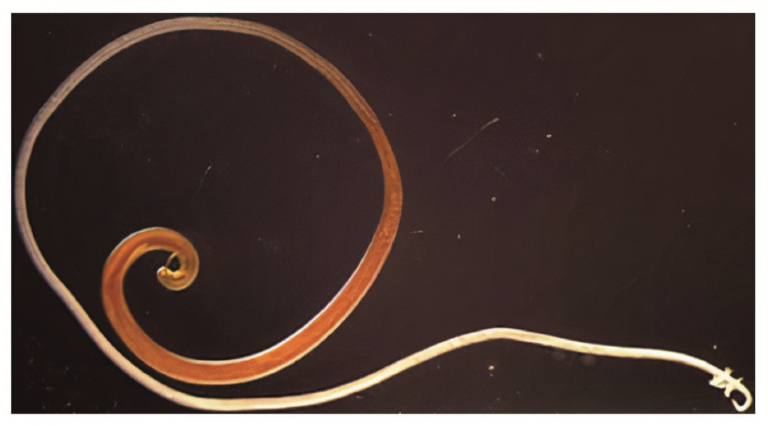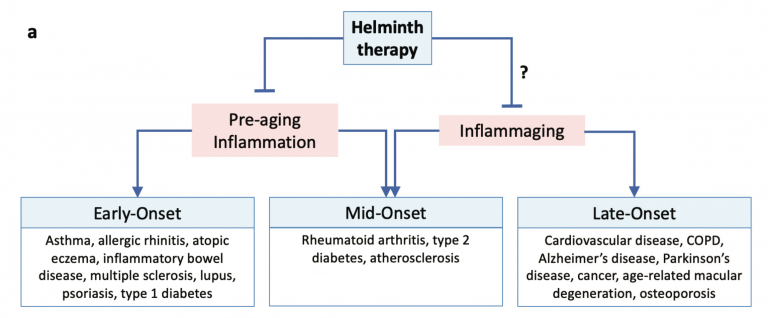Could playing host to hookworms inhibit ageing?
12 February 2021
A new article by Bruce Zhang and David Gems argues that elimination of helminth parasites may have increased diseases of inflammageing. Published by: UCL Institute of Healthy Ageing, Genetics, Evolution and Environment, Biosciences

Low level infections with parasitic nematode worms could inhibit aspects of human ageing, argues a provocative new article in eLife by Bruce Zhang and David Gems.
The study draws on recent experimental evidence that elimination of parasites can lead to excessive sterile inflammation. This contributes to a wide range of diseases, which could include many associated with old age. Because human immune function evolved in the presence of a whole lot of microbes and parasites, removing them completely can make the immune system abnormal, and cause illnesses like inflammatory bowel disease and multiple sclerosis (MS).

But late-life increases in inflammation (or "inflammageing") also contribute to many diseases of ageing, such as rheumatoid arthritis, Alzheimer's disease and chronic obstructive pulmonary disease (COPD). This suggests that loss of natural microbes and parasites might contribute to ageing, in turn suggesting that restoring "old friend" helminth species could under the right conditions inhibit this aspect of the ageing process.
The theory originated from a growing number of studies showing that infection with helminths (flukes, tapeworms and nematodes) can alleviate hyperinflammatory disorders, for example chronic allergies and MS. To test the plausibility of the theory published studies were surveyed that look at the relationship between infection with helminth parasites and diseases of ageing, and a number of instances were identified, supporting the theory.
Read the full article at:
https://elifesciences.org/articles/65180
 Close
Close

